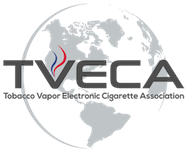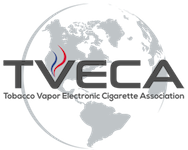British American Tobacco PLC's quest to develop innovative tobacco products has led the manufacturing giant to make its first investment in a venture capital fund.
The company, which owns Reynolds American Inc., confirmed Tuesday that it is participating in the Chinese investment fund known as China Materialia.
BAT did not disclose the amount. The Daily Telegraph of London reported Monday that the BAT investment could be as much as $6.7 million.
The Materialia fund focuses on investing in innovations for new materials, energy efficient and environment protection equipment, and advanced manufacturing, according to its website. It has received similar investment funding from BASF Corp., General Electric. and Samsung.
"We hope that our investment in their fund will provide us with access to new and emerging technologies that will allow us to continue to drive innovation across our whole business, including our combustible and next generation products portfolios," BAT said in a statement.
BAT is the world's largest publicly traded tobacco manufacturer.
China is not known for its production-innovation breakthroughs but more for being great duplicators of technology. The country, however, was on the forefront of electronic-cigarette manufacturing.
It wasn't until R.J. Reynolds Vapor Co. introduced Vuse in 2012 that there was a domestically made e-cigarette in the main U.S. marketplace.
It is the first time BAT has used research and development monies to invest in a venture capital fund.
"China is an increasingly important center for technology and innovation," BAT said. "Our investment in the fund allows us to tap into this.
"It's still very early days and so we're limited as to what we can say, however we're excited about the potential benefits our investment may bring."
In February, BAT projected much of its financial benefit from the U.S. corporate tax-rate cut would go toward accelerating the pace of making and distributing innovative products, primarily heat-not-burn traditional cigarettes and e-cigs.
BAT said it had a $13.3 billion tax-credit benefit from the revaluation of Reynolds' deferred tax assets and liabilities. The corporate tax rate was cut from 35 percent to 21 percent in late December 2017 under the new tax law passed by Congress.
Nicandro Durante, BAT's chief executive, said tax-rate cut savings will help BAT pay for "a huge investment to allow us to roll out to at least 40 markets tobacco heated products, and several others for vaping, in 2018."
Currently, BAT's heat-not-burn cigarette named glo is in five international markets - Canada, Japan, Russia, South Korea and Switzerland.
Some investment will be spent on adding production for innovative products "because we are capacity constraint," Durante acknowledged.
Durante has said BAT's preference is to make products in or near the markets in which they are sold.
That could lead to a significant boost in Reynolds manufacturing jobs in Tobaccoville if BAT can gain U.S. Food and Drug Administration approval to bring in some additional traditional cigarettes and innovative products, such as glo.
Since 2012, BAT and Reynolds have spent a combined $2.5 billion on developing next-generation products that also include snus.
"Collectively, we refer to these products as our potentially reduced-risk products," Durante said. It is a comment he is freer to make from a legal standpoint in the United Kingdom's current health-regulatory environment compared with what is permissible by the FDA.
Durante said BAT had $552 million in revenue from next-generation products in 2017 when counting the sharing of Reynolds' revenue from those products for seven months and then having full revenue for five months.
BAT projects $1.39 billion in next-generation products revenue in fiscal 2018, as well as nearly $7 billion in fiscal 2022.
rcraver@wsjournal.com 336-727-7376 @rcraverWSJ
© © Copyright 2018, Winston-Salem Journal, Winston-Salem, NC, source Newspapers



